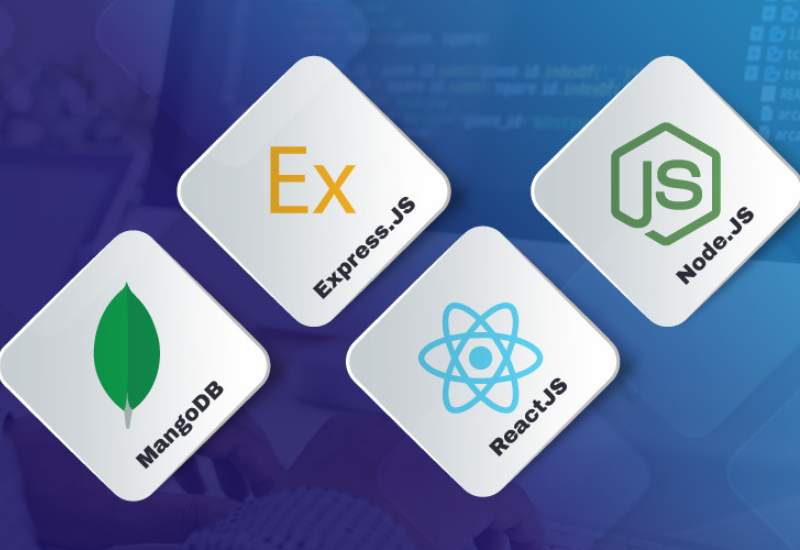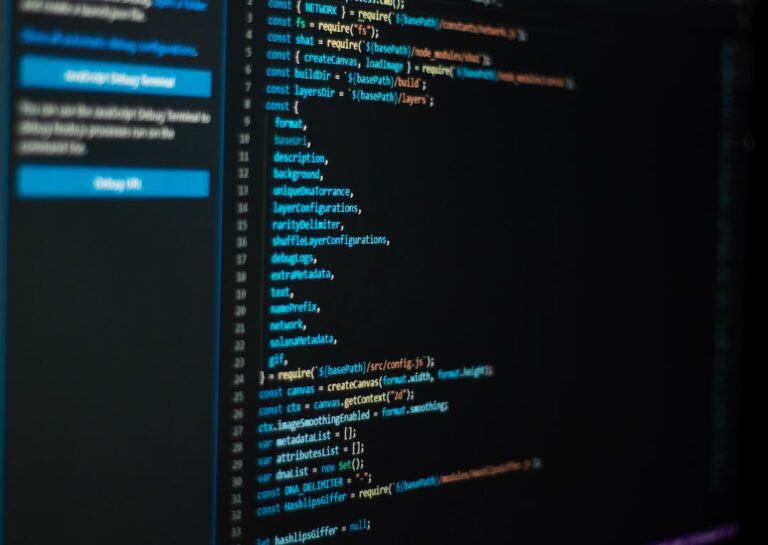This post brings to light on MERN Full-Stack Guide For Beginners. Are you a beginner looking to explore full-stack web development? Look no further! In this comprehensive guide, we will walk you through everything you need to know about MERN stack development. From understanding the fundamentals to setting up your development environment and deploying your application, we've got you covered. Let's dive in!

Introduction
As technology advances, full-stack development has become increasingly popular. The MERN stack, which stands for MongoDB, Express.js, React, and Node.js, is a powerful combination that enables developers to build robust web applications efficiently. In this guide, we will provide you with a step-by-step overview of the MERN stack, its components, and how to get started.
What is MERN Development?
MERN is a JavaScript-based full-stack development framework that leverages four key technologies. MongoDB is a NoSQL database used for storing and retrieving data. Express.js is a web application framework for building server-side applications. React is a powerful JavaScript library for building user interfaces, and Node.js is a runtime environment that allows you to execute JavaScript code outside of a web browser. In short, React is used as frontend and backend development with Node.js and Express
Benefits of MERN Development
The MERN stack offers several benefits that make it a popular choice for web developers. First and foremost, it allows for a seamless development experience by using a single language throughout the entire stack. JavaScript is used both on the frontend and backend , reducing the need to switch between different programming languages. Additionally, the MERN stack promotes code reusability, modularity, and scalability, making it an efficient choice for building complex applications.
MERN Stack Components
Let's take a closer look at the components that make up the MERN stack:
MongoDB
MongoDB is a document-oriented NoSQL database that provides flexibility and scalability. It stores data in JSON-like documents, making it easy to work with, especially in combination with JavaScript-based applications.
Express.js
Express.js is a fast and minimalist web application framework that simplifies the process of building server-side applications. It provides a set of robust features and middleware that enable developers to handle routes, requests, and responses effectively.
React
React is a JavaScript library developed by Facebook for building user interfaces. It allows developers to create reusable UI components and efficiently update and render data as the application state changes. React's virtual DOM ensures high-performance rendering, providing a smooth user experience.
Node.js
Node.js is a JavaScript runtime environment that allows developers to execute JavaScript code on the server-side. It provides a vast ecosystem of packages and modules, making it easy to build scalable and efficient web applications.
Frontend Development with React
React is the powerhouse of frontend development in the MERN stack. In this section, we will explore the key concepts of React, including components, JSX, state management, and routing. We will guide you through building a simple React application and provide you with best practices to enhance your frontend development skills.
Backend Development with Node.js and Express
In this section, we will shift our focus to the backend development using Node.js and Express.js. We will cover topics such as setting up an Express.js server, handling routes, integrating middleware, and interacting with the database. By the end of this section, you will have a solid understanding of backend development and be able to build RESTful APIs for your MERN applications.
Database with MongoDB
MongoDB is a popular choice for handling data in MERN applications due to its flexibility and scalability. In this section, we will guide you through setting up MongoDB, creating collections, performing CRUD operations, and implementing data relationships. You will learn how to leverage MongoDB's powerful querying capabilities to efficiently manage data in your MERN stack applications.
How to learn mern stack step by step guide:
Learning a full-stack guide for beginners can be an effective with the following approach . Here's a How to learn mern stack step by step:
- HTML, CSS, and JavaScript: Begin by gaining a solid foundation in web development fundamentals, including HTML for structure, CSS for styling, and JavaScript for interactivity.
- React: Dive into learning React, the JavaScript library for building user interfaces. Understand concepts such as components, state management, and routing.
- Node.js and Express.js: Familiarize yourself with Node.js, a JavaScript runtime, and Express.js, a web application framework. Learn to build backend APIs and handle server-side operations.
- MongoDB: Explore MongoDB, a NoSQL database, and learn to perform CRUD (Create, Read, Update, Delete) operations. Understand data modeling and database integration in MERN applications.
- Connecting Frontend and Backend: Learn to connect your React frontend with the Express.js backend. Implement API calls, handle data transfer, and ensure seamless communication between the two layers.
- Authentication and Authorization: Enhance your application's security by implementing user authentication and authorization using libraries like Passport.js or JSON Web Tokens (JWT).
- Deployment and Hosting: Master the art of deploying MERN applications to hosting platforms such as Heroku, AWS, or Netlify. Understand the deployment process and optimize your app for production.
- Advanced Topics: Deepen your knowledge by exploring advanced topics such as server-side rendering, state management libraries (e.g., Redux), GraphQL, and testing frameworks (e.g., Jest).
- Projects and Practice: Put your skills into practice by working on real-world projects. Build complete MERN applications to reinforce your understanding and gain hands-on experience.
- Continuous Learning: Stay updated with the latest trends and advancements in the MERN stack. Follow online resources, join communities, and participate in coding challenges to continually improve your skills.
Conclusion
Congratulations! You have completed the Ultimate MERN Full-Stack Guide for Beginners. Throughout this guide, we have explored the MERN Development components, and learned frontend and backend development using React, Node.js, and Express.js. We have also covered database integration, connecting the frontend and backend, deploying applications, and sharing best practices. With this knowledge, you are well-equipped to embark on your journey as a MERN stack developer.
FAQs
- Q: Can I use a different database instead of MongoDB in the MERN stack?
A: Yes, while MongoDB is commonly used, you can choose a different database based on your project requirements. The MERN stack is flexible and can be adapted to work with other databases. - Q: Is it necessary to learn all the technologies in the MERN stack to become a full-stack developer? A: While it is beneficial to have a good understanding of all the technologies, you can specialize in either frontend or backend development based on your interests and career goals.
- Q: Are there any MERN stack boilerplates available to kickstart development?
A: Yes, there are several MERN stack boilerplates and starter kits available that provide a preconfigured setup to jumpstart your development process. - Q: Can I use TypeScript instead of JavaScript in the MERN stack?
A: Absolutely! TypeScript is a strongly-typed superset of JavaScript and can be used in the MERN stack to enhance type safety and development productivity. - Q: What are some popular MERN stack projects or websites?
A: Some popular projects built with the MERN stack include Airbnb, Instagram, and WhatsApp.
Master the MERN stack and unleash your full-stack potential with this comprehensive guide. Start building powerful web applications today! All The Best!!👍👍


